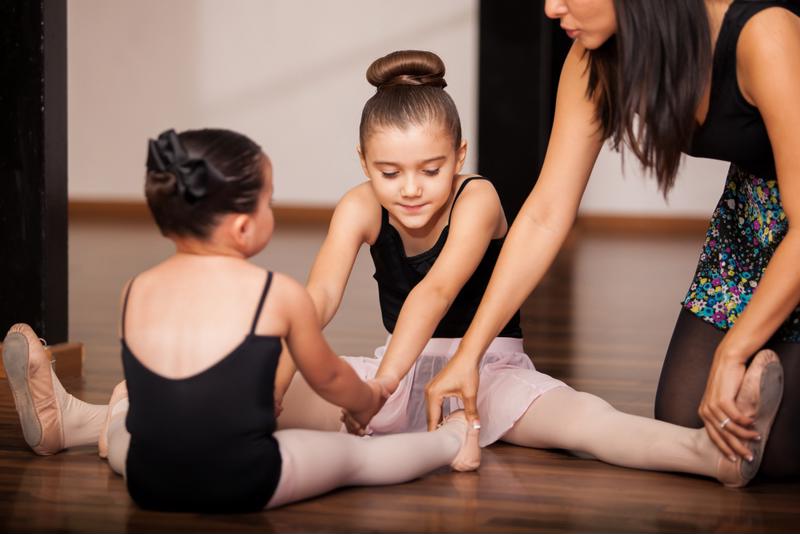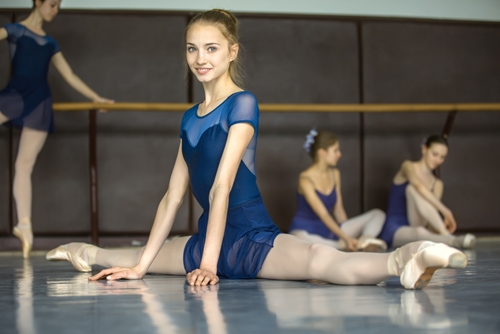There are many reasons that dancers seek to improve their flexibility. Maybe they’re just starting out and want to do their first split. Or sometimes more advanced students need a greater range of flexibility to nail complicated tricks. Whatever students’ motivations may be, dance instructors should be able to provide sound advice on how dancers can safely improve flexibility. Here are some tips on flexibility for dancers to share with your performers.
“Work to gradually increase flexibility.”
Why Safety is Key
It’s essential that dance teachers show their students safe ways to increase flexibility because there are so many “quick fixes” on the Internet. Students who want to quickly elongate their muscles often turn to dangerous and extreme stretching methods, which can hurt their bodies in the long run. Explain to your students the consequences of improper stretching methods and work with them to gradually improve flexibility.
Always Warm Up
Young students may be tempted to jump right into difficult stretches, but cold muscles aren’t going to be limber. If dancers want to see results and avoid injuries, they should always start their stretching sessions by warming up with a few cardio exercises and then ease themselves into the pose.
In the video below, Virginia from Encore Gymnastics shows how students can gradually improve their splits, starting with light stretches on the front and back legs.
[wpsm_video]https://www.youtube.com/watch?v=tMP_ObBSl0U[/wpsm_video]
Proper Technique
As Virginia points out in the video, proper form is key when it comes to an effective stretch. For this reason, dancers should focus on maintaining good body posture while stretching.
Students also need to be thinking about how often they’re stretching and for how long. Leigh Heflin, who works at the Harkness Center for Dance Injuries at NYU Langone Medical Center, explained to Dance Teacher magazine that different people will need to stretch more often, depending on their body’s natural predisposition. Dancers who are a little more limber might only need to stretch three times each week, where less-flexible students would benefit from five sessions.

Have your students work together to gradually improve flexibility.
It’s also important for students to slowly increase their stretching. Dancers shouldn’t try to “overstretch,” as demonstrated in the video, until their bodies are ready.
“You have to progressively overload that capacity on your muscle,” Heflin noted. “Increase tension and stretch every week. You can’t expect to be there right away.”
The International Association for Dance Medicine and Science recommended that students aim for three to five reps of 30-second static stretches per session. This will help stretch the muscle tissue at a safe, progressive rate.
Flexibility No No’s
In addition to providing dancers with these helpful pointers, teachers should explain to their students what not to do when stretching. Here are some don’ts when it comes to flexibility for dancers:
- Don’t stretch too much before a performance, as this can reduce your ability to jump.
- Avoid prolonged stretches, which are held for 20 minutes or more.
- Don’t push through sharp, searing or severe pain.
- Dynamic and static stretching are preferable to ballistic stretches. Bouncing or jerking your muscles can lead to injury.
- If your muscles are particularly tight, use a foam roller on them instead of stretching further.



